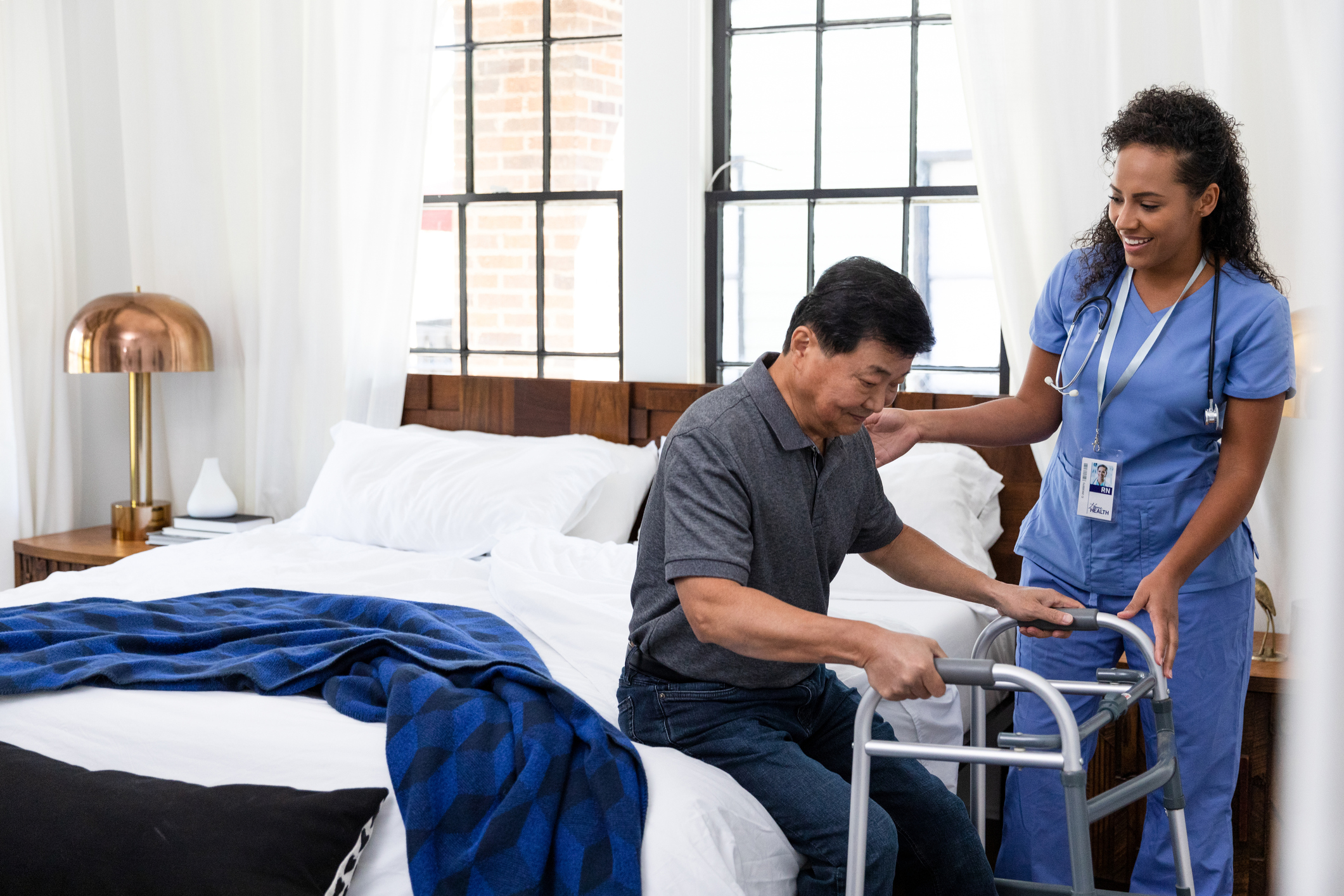
A rapidly aging global population doesn’t only mean there’s a higher demand for senior care services, it demands that the services skilled nursing facilities and long-term care centers provide must be top-notch.
In regard to the intricacies and nuances of senior healthcare services and support for older adults, one critical element stands out as the foundation for success: effective communication. It’s no longer a mere convenience but a necessity that’s being offered in the senior care space. Beyond the mere transmission of information, it’s the key that unlocks a compassionate and empowering environment for seniors and their families, giving way to trust, empathy, and respect.

With the Rise of AI, What IP Disputes in Healthcare Are Likely to Emerge?
Munck Wilson Mandala Partner Greg Howison shared his perspective on some of the legal ramifications around AI, IP, connected devices and the data they generate, in response to emailed questions.
Healthcare executives and professionals in the senior care industry must not only recognize the significance of effective communication but also actively cultivate and implement strategies that enhance these vital channels.
The significance of effective communication in senior care
Effective communication in senior care is necessary for important interactions that happen within this complex healthcare environment. It’s not just about exchanging words; it’s about creating a nurturing, compassionate, and supportive environment for residents and the loved ones who visit them.
This form of communication empowers residents by giving them a voice. Just like anyone else, senior citizens yearn for agency and the ability to express their preferences, concerns, and needs. When they feel heard and respected, they become active participants in their care plans.
Family engagement
Families play an integral role in the well-being of seniors in care settings. Open and honest communication helps families stay informed about their loved one’s condition, treatments, and progress. This transparency reduces their anxiety and enables them to make informed contributions to care decisions.
Caregiver collaboration
Effective communication ensures that caregivers, including nurses, doctors, therapists, and support staff, are all in sync. When everyone is well-informed and capable of communicating clearly, it leads to more efficient coordination and safer, more effective care delivery.
Quality of life
Effective communication in senior care transcends the realm of medical care; it also significantly impacts the overall quality of life for seniors. Simple acts of listening and engaging in meaningful conversations can alleviate loneliness and depression, nurturing a positive emotional and mental state for senior residents.
Empathy, respect, and trust should be at the core of every communication exchange. By adopting these values and implementing the following practical strategies, healthcare executives can elevate the communication standard in senior care settings.
Practical strategies for effective communication in senior care
There are a number of strategies senior care executives can implement within their facilities to strengthen their internal communication:
- Active listening: Active listening is the cornerstone of effective communication in senior care. It involves not just hearing words but also understanding emotions and unspoken messages. To truly connect with residents, caregivers should sit down, maintain eye contact, and provide their full attention during conversations.
- Clear and simple language: Complex medical jargon has no place in communication with seniors and their families. Use clear and simple language that ensures everyone can understand. This not only facilitates understanding but also fosters trust and inclusivity.
- Regular updates: Families in senior care settings often experience high-stress levels and concern about their loved ones. Providing regular updates on the resident’s condition and care plan can alleviate this stress, build trust, and empower families to actively engage in the care process.
- Individualized care plans: Every resident is unique, and their communication needs may vary. Tailor communication strategies to the preferences and abilities of each resident. Some may prefer written communication, while others may need more face-to-face interactions.
- Training for staff: Invest in training programs for staff to improve communication skills. Courses on empathy, active listening, and cultural competence can help staff provide more effective care and support for residents and their families.
- Feedback mechanisms: Create feedback mechanisms where residents and families can provide input on the care provided. This not only ensures that their voices are heard but also helps in making necessary improvements in the care process.
- Conflict resolution: Conflicts can arise in any care setting. Healthcare executives should have clear protocols for resolving conflicts and addressing complaints. Openly acknowledging and resolving issues can prevent escalation and maintain a positive atmosphere in the facility.
- Technology integration: Embrace technology for improved communication. Electronic health records provide easy access to resident information and enhance coordination among healthcare providers. Telehealth options can also improve communication, especially with remote family members or caregivers.
- Cultural sensitivity: In a diverse society, healthcare providers should be culturally sensitive and aware of different customs and communication norms. What might be seen as respectful in one culture can be perceived differently in another.
Effective communication is not an optional extra in senior care; it’s a fundamental necessity that underpins the quality of care and the overall well-being of residents. Implementing the strategies outlined above is how healthcare executives can ensure their senior care settings become places of empowerment, reassurance, and support for all those involved.
Photo: LPETTET, Getty Images
Bent Philipson is the founder of Philosophy Care that provides care guidance to skilled nursing facilities throughout New York and New Jersey. Under Bent Philipson’s leadership, Philosophy Care is dedicated to providing each resident with individualized care. dedicated to providing each resident with individualized care. Services include Alzheimer’s care, amputation therapy, wound care, tracheostomy care, physical therapy, occupational therapy, speech therapy, stroke recovery, palliative care, cardiac rehabilitation, IV therapy, and bariatric care.














